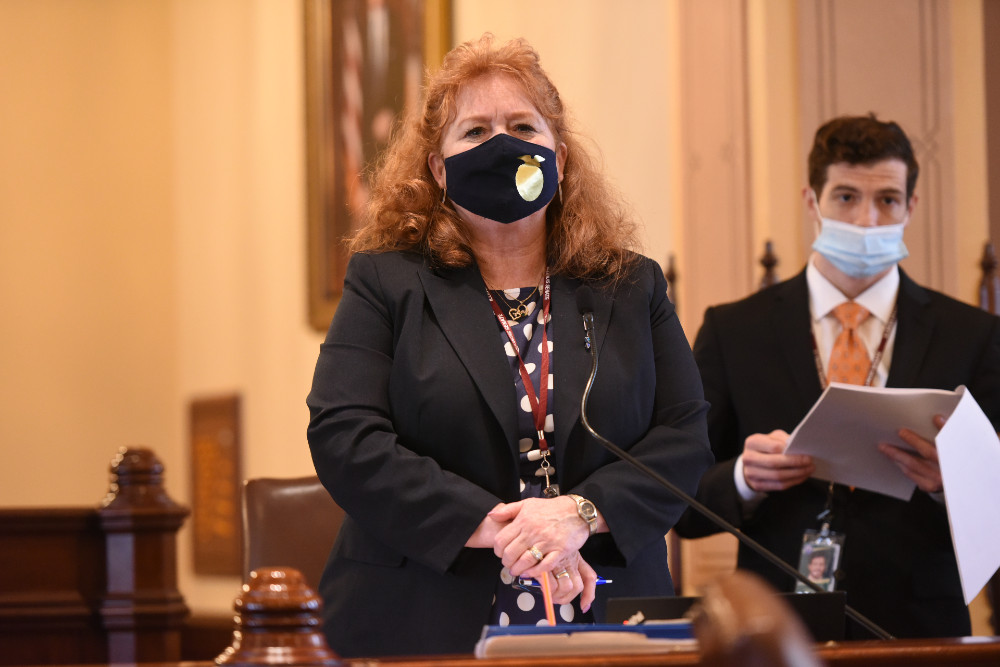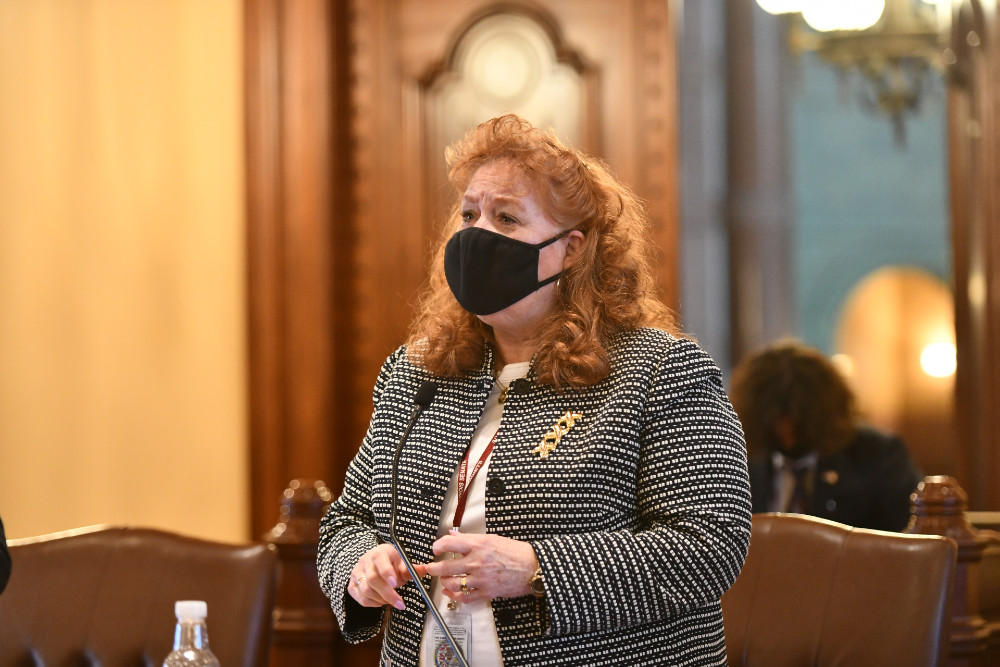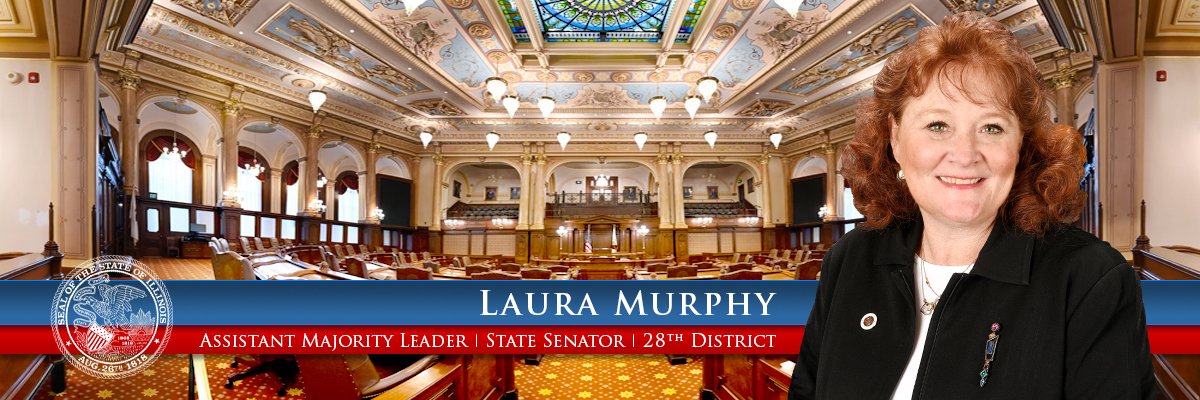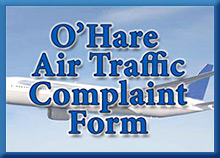Murphy invites local governments, community members to submit comments regarding proposed projects at O’Hare Airport
- Details
 DES PLAINES – State Senator Laura Murphy (D-Des Plaines) invites local governments and members of the public to submit comments to the Federal Aviation Administration (FAA) regarding the proposed Airport Terminal Area Plan and changes to air traffic procedures at Chicago O’Hare International Airport.
DES PLAINES – State Senator Laura Murphy (D-Des Plaines) invites local governments and members of the public to submit comments to the Federal Aviation Administration (FAA) regarding the proposed Airport Terminal Area Plan and changes to air traffic procedures at Chicago O’Hare International Airport.
“Many members of the community stand to be affected by operational changes at O’Hare Airport,” Murphy said. “It’s important that every voice is heard during the planning process.”
The FAA is preparing an Environmental Assessment to analyze actions proposed by the Chicago Department of Aviation, including terminal projects, in-airport hotels, airfield and taxiway improvements, and support facilities.
The Environmental Assessment will determine whether the proposed projects have the potential to significantly affect various environmental resources, such as noise, air quality, water resources and historic facilities.
Government agencies, local officials and community members are encouraged to participate in the scoping process to provide input for the Environmental Assessment. Detailed descriptions of the proposed projects are available here.
The FAA is accepting comments via:
- Web: http://www.faa.gov/airports/great_lakes/TAPandATEA
- Email:
This email address is being protected from spambots. You need JavaScript enabled to view it. - Voicemail: (847) 294-7354
- Mail: Ms. Amy Hanson
Federal Aviation Administration
2300 E. Devon Ave.
Room 320
Des Plaines, IL 60018
Comments must be submitted by July 9, 2021.
Murphy fights to lower costs for college students
- Details
 SPRINGFIELD – To ensure Illinois college students can afford the tools they need to learn, State Senator Laura Murphy (D-Des Plaines) has advanced legislation to create a task force dedicated to making textbooks and other course materials more affordable.
SPRINGFIELD – To ensure Illinois college students can afford the tools they need to learn, State Senator Laura Murphy (D-Des Plaines) has advanced legislation to create a task force dedicated to making textbooks and other course materials more affordable.
“The school year is over, and many recent high school grads are preparing for college—and the financial stresses that often come with it,” Murphy said. “It’s time to examine ways our schools can lift some of that burden for students and their families.”
The legislation would create the Course Materials Equitable Access and Affordability Study Task Force, which would research ways to save students money on course materials, examine digital learning materials in response to the COVID-19 pandemic, and publish its findings online.
Using these findings, the task force would identify best practices for colleges and universities with an eye toward improving affordability, ensuring access to required course materials by the first day of class, and securing better outcomes for students—especially minority, low-income and first-generation students.
“No student should have to skip buying a textbook because they can’t afford it,” Murphy said. “This task force will ensure every college kid in Illinois can get the most out of their courses.”
House Bill 332 advanced out of the House in April and passed the Senate Tuesday without opposition.
Murphy: Transparency is the first step toward combating violence at Illinois schools
- Details
 SPRINGFIELD – Following a federal report indicating bullying and violence remain significant issues at schools across the country, State Senator Laura Murphy (D-Des Plaines) is taking action to address the problem in Illinois by strengthening incident reporting requirements.
SPRINGFIELD – Following a federal report indicating bullying and violence remain significant issues at schools across the country, State Senator Laura Murphy (D-Des Plaines) is taking action to address the problem in Illinois by strengthening incident reporting requirements.
“Students deserve to feel safe at school,” Murphy said. “To root out the cause of violence between students and work against it, we need to know what we’re dealing with—stronger reporting requirements will help us understand the depth of the problem in our schools.”
Murphy’s proposal would require the Illinois State Board of Education to collect data on incidents of violence that occurred on school grounds or during school-related activities that resulted in a student’s out-of-school suspension, expulsion or removal to an alternative setting.
ISBE would be required to post the number of incidents recorded in each district on its public Illinois School Report Card website.
During the 2017-18 school year, an estimated 962,300 violent incidents occurred in U.S. public schools nationwide, according to the most recent School Survey on Crime and Safety administered by the U.S. Department of Education. Seventy-one percent of schools reported having at least one violent incident.
“Transparency is the first step toward finding a solution to violence in our classrooms,” Murphy said. “To keep our students safe, we need all available information at our disposal.”
Senate Bill 633 passed the Senate Wednesday without opposition.
Northwest Suburban communities to receive over $11 million for infrastructure
- Details

“Sound infrastructure is critical to our communities’ safety and success,” Murphy said. “These funds will allow our local governments to make much-needed upgrades to sidewalks, roads and bridges, making travel smoother and easier for all our residents.”
The funding is being distributed in an effort to ensure that local governments have the necessary resources to repair and maintain infrastructure, as well as create jobs and boost the economy on a local level. Cities and municipalities may choose to use the grant for road and bridge improvements, traffic signal upgrades, new storm sewers and bike paths, sidewalk replacements and other long-term maintenance needs, with financial oversight from the Illinois Department of Transportation.
“Rebuild Illinois doesn’t just revitalize our infrastructure—it creates high-quality jobs right here in the community,” Murphy said. “This plan is critical to the long-term economic health of our region and of Illinois as a whole.”
This funding comes as the fourth of six rounds of grants totaling $1.5 billion through the Rebuild Illinois program. A complete list of awards is available here.
More Articles …
Page 53 of 137








